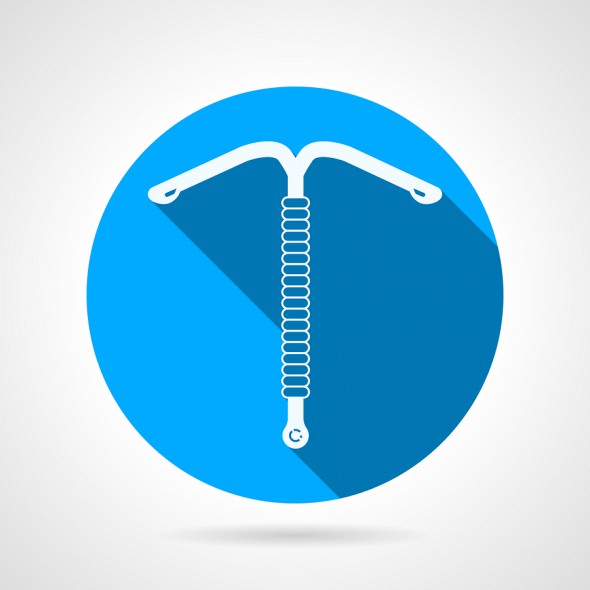Contraceptives Key to Fighting Poverty Cycle
UW-Madison study shows long-acting contraceptives like IUDs reduce unwanted pregnancies, single moms, poverty.
What could be the single most effective way of eliminating poverty in the Milwaukee region?
You might say job creation, workforce training or a higher minimum wage. You would be right to say they all make a big difference. But high level poverty persists in the region despite the jobless rate dropping below 5%, despite intense efforts to help people develop skills for the work world and despite substantial increases in wages at all levels this year.
Based on a recent analysis out of Madison, the better bet would be “LARCs.”
Those are long-acting reversible contraceptives that have proved in other cities and states to be highly effective in reducing the number of unintended pregnancies (UPs). Births to single moms are at an epidemic level in the state and region and especially in Milwaukee County, the biggest pocket of poverty in the state, and those births are an almost certain life sentence for mother and child to a life of further poverty.
Pregnancies for mothers in fatherless homes have long term negative effects on poverty levels, crime rates, stress levels in the home, abortion levels, school performance, time to train for jobs and time off from work. The UP issue is a major issue.
Note these striking realities:
- Nearly half of all pregnancies in Wisconsin (46%) are unintended, meaning that the mother did not want to become pregnant at the time or ever.
- In Milwaukee County, the percentage of births to single moms is 67%.
- Nearly half of the UPs occur to women who were using short-term contraceptives that did not work right for one reason or another.
- LARCs, either intrauterine devices (IUDs) or below-the-skin implants, are more than 20 times more effective than other forms of contraception like the pill, condoms, the patch, ring or injections. They are almost fool-proof.
- Women prefer LARCs because they can “get it and forget it.” They remain effective for three to ten years until removed, when intended pregnancies can almost always resume. They are reversible.
- Except for condoms, which don’t work very well, LARCS average annual costs are less than short-acting methods.
- Preventing UPs in Wisconsin could save Medicaid more than $200 million per year.
This policy analysis, a collaboration between the LaFollette School of Public Affairs and the UW – Madison School of Medicine and Public Health, has not been picked up by the general press. That’s not atypical for academic papers. But this one has major implications for improving lives in the state. It deserves wide dissemination.
Tim Smeeding, a UW – Madison professor and poverty expert, said, “Numerous studies have demonstrated an association between unintended pregnancy and a wide variety of negative physical health, mental health and socio-economic outcomes, especially for young mothers and their children.”
He added, “Preventing unintended pregnancies remains a major health challenge in Wisconsin.”
Put another way, an unintended birth to a poor, single mom is almost a life sentence to another cycle of poverty for both mother and child. Those moms are so consumed with child raising and making ends meet that they have little time for getting trained for better jobs and incomes.
Privately funded pilots in Colorado and St. Louis showed sharp reductions in teen births when LARCs were made accessible and affordable. As one example, the birth rate for teens in the CHOICE program in St. Louis dropped 58% between 2008 and 2013, compared to 19% for the city average.
Wisconsin, which has made great progress on lowering teen birth rates, saw Colorado do even better as its pilot program matured. Wisconsin’s rate dropped 39% from 2009 to 2014, proving progress can be made with concerted effort, while Colorado’s dropped 46%.
There are early signs that private funders may step up to the plate on a Milwaukee area LARCs initiative. If such a pilot also produced sharp drops in UPs to single moms, its results could lead to public support for a statewide program, despite the contentious nature of the politics of contraception.
Leaders of all stripes have been trying for years to disrupt the cycles of poverty that trap generation after generation of poor people. LARCs are a proven tool that could help. It’s time to get pragmatic on this subject.
John Torinus is the chairman of Serigraph Inc. and a former Milwaukee Sentinel business editor who blogs regularly at johntorinus.com.
Op-Ed
-
Why Vote for MPS Funding Referendum
 Mar 30th, 2024 by Nehemiah Edwards
Mar 30th, 2024 by Nehemiah Edwards
-
Wisconsin’s Very Own Rudy Giuliani Should Not Oversee Judicial Ethics
 Mar 25th, 2024 by Richard Niess
Mar 25th, 2024 by Richard Niess
-
Voting at Wisconsin’s Universities Isn’t Easy
 Mar 17th, 2024 by Nicole Laudolff
Mar 17th, 2024 by Nicole Laudolff

















Are you trying to prevent poverty in the long term or just prevent unwanted pregnancy?
– “Nearly half of the UPs occur to women who were using short-term contraceptives that did not work right for one reason or another.” Translation: User error
This plan does nothing more than treat the symptom of poor decision-making. So we spend (or possibly even save) some money with this program just to have the participants make one or a series of other devastatingly bad life choice thus keeping them in poverty. Attacking the fringes of the problem.
As a proud user of an IUD myself, I disagree with Jeremy’s point about unintended pregnancies being “user error”. Clearly “the pill” and other contraceptives that are short term and require multiple visits to the doctor and drugstore to get prescriptions renewed are actually “obsolete technology” that can be replaced by more effective methods.
Jeremy, do you still use cassette tapes and records? Do you still get a paper newspaper? Have you eschewed getting a new cell phone? I doubt it. Much like online news, mp3’s, and cell phones, long term contraceptives just make sense for most people,unless they are planning to have kids within a couple years. Unfortunately, our medical professionals and our “sex Ed” programs are still stuck recommending contraceptives that were first developed 50 or more years ago.
And I do think that being a teen mom is pretty much devastating to a young woman’s chances of escaping poverty. I think this program would give many girls a chance to escape that consequence.
Jeremy doesn’t seem to understand the impact on households when one or more children born into poverty. Jeremy, it’s simple math. Food, shelter, medical care, etc. all cost money, and when there are more people involved, more money is required.
Jeremy brings up the matter of “user error”, probably a reality, but then doesn’t seem to understand that is also a part of the equation. Plain and simple, if contraception and education can lower the birth rate in this community, that’s a good thing.
Yea just like bulimia is key to fighting obesity. Because you can’t seriously expect overweight people to not disorder the act of eating and not partake in the activity of said eating.
Good article, John. One key obstacle to putting programs for long-term contraceptives in place is “the contentious nature of the politics of contraception,” as noted. Funding for Planned Parenthood, a leading provider of contraception and other basic health care, is continually slashed. Some extreme conservatives, including Supreme Court Justice Rebecca Bradley, consider birth control akin to “murder.”
Some reality deniers would rather prevent access to birth control than to prevent unwanted pregnancies and resultant poverty.
By the way, Jeremy, not all failures of short-term birth control represent “user error.” Some methods have a 5% or greater failure rate even when used as prescribed.
I think Jeremy is just against taxpayers being forced to pay for anyone elses poor decision making. While I agree with that, fact is that people are people and will make dumb decisions so you have to be practical about it. This will ultimately save taxpayers because we’ll pay far more down the road for higher rate of unwanted pregnancies (look, I typed out the whole word! No initialism…). With no moral questions to get in the way, I fully support this!
Poverty is a SOCIALLY PRODUCED and ECONOMICALLY NECESSARY part of the capitalist system. If the poor have fewer kids, then more middle class people will be made poor to maintain a large surplus population who are easily exploited to keep the labor market balanced in favor of lower wages. To suggest otherwise, to present research in a way that reverses the causal relationship between poverty and people’s lifestyles, to put the burden of ending systemic poverty onto the poor, and specifically onto poor women’s bodies and fertility, within the context of the state that has been deemed the worst place to raise black children is nothing but eugenics.
This research is gross. The way you present it is disgusting. Get out.
Not all poverty (or lower income) is the result of “poor decision making.” Many college students are poor as they work to get themselves through school–and even after they graduate with much college debt. (Or they could “choose’ to not get higher education–another possible dead end).
Other people face poverty after a job layoff or illness within a family.
Many young people are NOT starting families because they cannot afford to. But long-term birth control is one commonsense tool to aid such decision making.